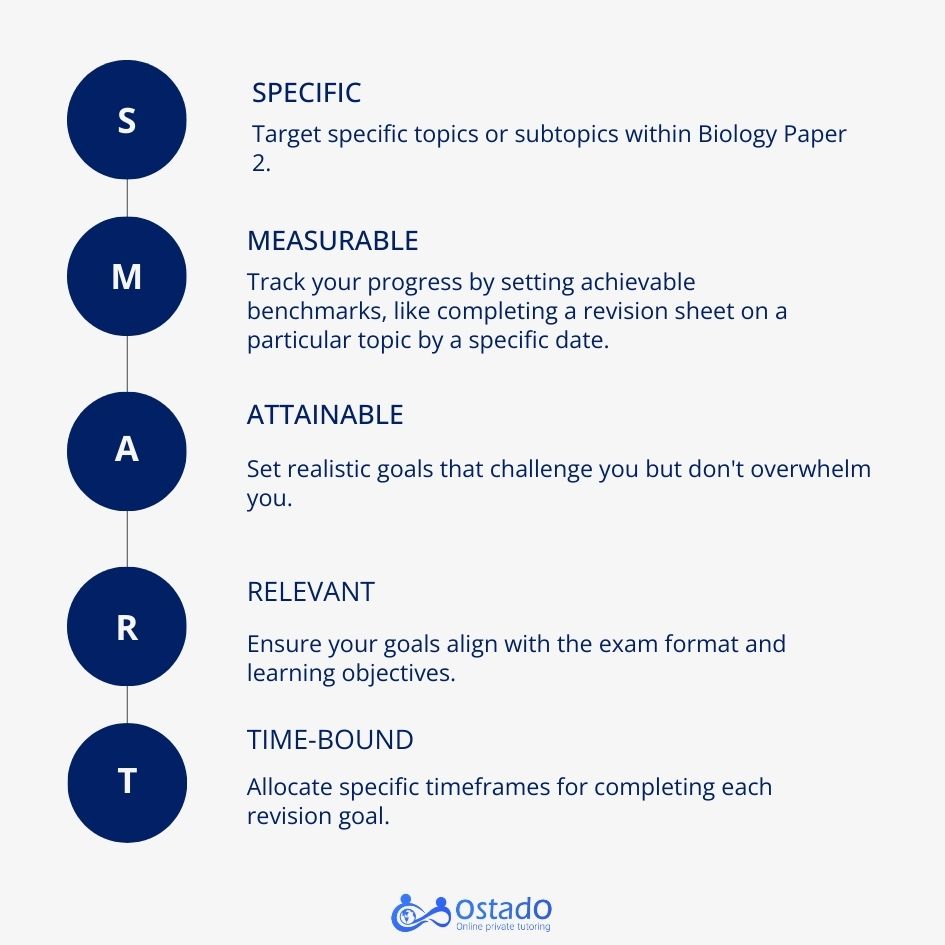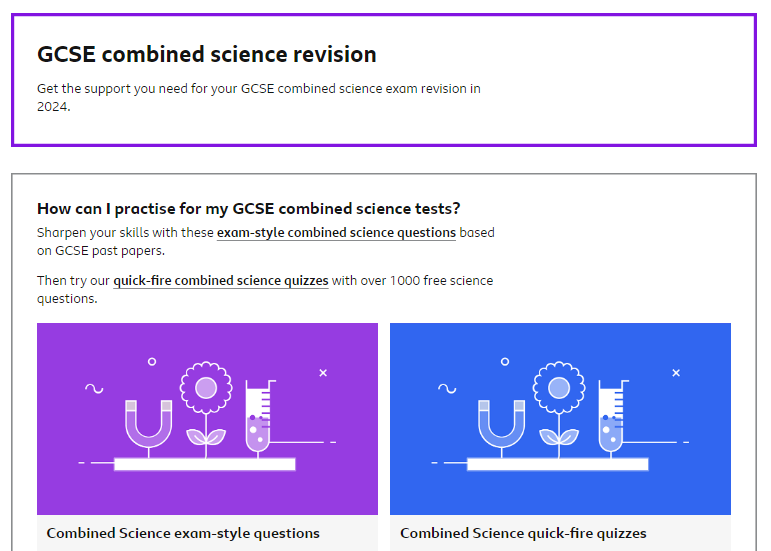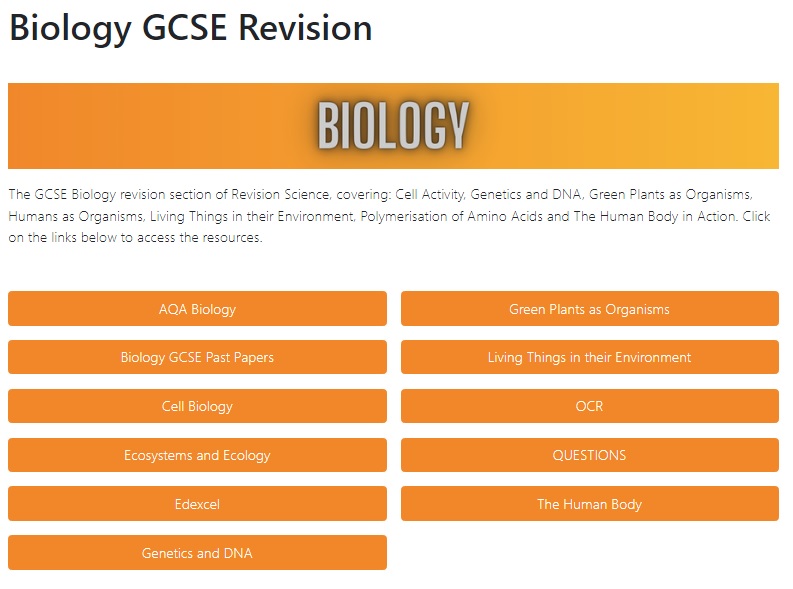Biology Combined science gives pupils the foundation of theoretical and practical knowledge, equipping them with a basic understanding. We have provided a comprehensive guide for students preparing for this critical exam regarding combined science biology paper two revision:
- Practise past papers.
- Explore the marking schemes to gain an understanding of what the examiners need.
- Learn by teaching; explain the topics to someone.
- Review your revision topics at increasing intervals (spaced repetition).
- Track your progress, not the hours of studying.
- Utilise online revision tools and websites such as BBC Bitesize.
Overview of the Combined Science Biology Paper 2 Exam
The ‘Combined’ science GCSE, also known as Double Science, is worth two GCSEs and covers all three sciences: biology, Chemistry, and Physics. Pupils can sit at the Foundation or higher-tier Combined Science, but not both or combination. The number and depth of questions vary in these exam formats. Paper 2 combined science biology consists of multiple-choice, structured short answers, and extended writing. Based on the exam board, the exam time is between 1 hour 15 minutes and 1 hour 45 minutes.
Assessment Objectives and Mark Schemes
Generally, the short answer and multiple-choice questions have 1 to 2 marks, and more extended questions have 4 to 5 marks. Since there are various question types, the assessment measures learners’ knowledge, understanding of biological concepts and graphs, and analysis skills.
Learning to interpret the mark scheme promotes a deeper understanding of exam paper 2. It allows students to manage their time more effectively. Below are PDF files of GCSE Combined Science Biology Paper 2 questions and schemes to help you understand what examiners are looking for at different levels. Some mark schemes highlight students’ common errors, helping you identify potential response pitfalls. The important thing is to read the questions carefully and pay attention to the command words used in each question.
Effective Revision Strategies for Biology
Practical combined science biology paper two revisions help you maximise your grades. Below are tips to help you stay a step ahead of Combined Science GCSE biology paper 2:
Create a Revision Plan
Creating a tailored revision plan helps you manage exam stress and maintain a healthy study-life balance. To do so, you must identify your weaknesses and strengths and prioritise biology topics accordingly. It is advisable to allocate more revision time to challenging topics and pay attention to the topics you feel confident about.
You can use past papers to assess yourself. Setting challenging yet achievable goals is also essential. SMART goal setting is a great planning technique, an acronym for setting Specific, Measurable, Attainable, Relevant, and Time-bound.

Active Recall and Practice Questions
One of the most powerful revision and study techniques is active recall, which actively stimulates your memory for information instead of passive reading and rereading. How do you use active recall for biology revision? Below are some tips:
- Practice with sample questions and past papers.
- Summarise in your own words.
- Test yourself using flashcards with key points and answers on each side.
- Learn by teaching; explain the topics to someone.
- Review your revision topics at increasing intervals (spaced repetition).
- Track your progress, not the hours of studying.
|
AnkiApp Flashcards is an excellent app for creating flashcards during Biology revision. You can also add pictures or sounds to the flashcards. |
Key Biology Topics for Paper 2
The paper 2 Biology GCSE covers topics 5-7: homeostasis and response, inheritance, variation and evolution, and ecology. According to AQA, the exam time is around 1 hour 45 minutes with 100 marks and 50% of GCSE. Let’s take an in-depth look into the paper two topics:
| Homeostasis and Response | |
| Balance | Maintain internal conditions for optimal function |
| Nervous System | Structure and function |
| Brain Regions | Roles of cerebrum, cerebellum, medulla. |
| The Eye | Structure and function (accommodation, adaptation) |
| Temperature Control | Mechanisms for maintaining body temperature |
| Hormones | Endocrine system and hormone functions (e.g., reproduction) |
| Body Fluids | Osmosis, kidney function, data interpretation. |
Combined Science Biology: Inheritance, Variation and Evolution
| Inheritance, Variation and Evolution | |
| Reproduction | Meiosis vs. mitosis outcomes. |
| Meiosis | Cell division and its role in reproduction. |
| DNA & Genome | Structure and definition. |
| Inheritance | Probability and single gene inheritance. |
| Disorders | Issues of embryo screening. |
| Sex Determination | Genetic crosses and sex inheritance. |
| Evolution | Genome and environment influence phenotype development.
Natural selection. |
| Selective Breeding | Impact on food and animals. |
| Genetic Engineering | Modifying genomes for desired traits. |
| Cloning | Potential benefits, risks, and ethics. |
| Genetics Understanding | Development, including Mendel’s work.
Importance of Mendel’s discovery. |
| Fossils | Extracting information from evolutionary trees. |
| Extinction | Factors contributing to species extinction. |
Combined Science Biology: Ecology
| Ecology | |
| Ecosystem Communities | Organisation levels. Interdependence and competition. |
| Producers | Photosynthetic organisms as producers. |
| Material Cycles | Cycling of materials through ecosystems (e.g., carbon, water). |
| Decomposition | Factors affecting the rate of decomposition. |
| Environmental Change | Evaluating impacts on species distribution. |
| Sex Determination | Genetic crosses and sex inheritance. |
| Biodiversity | Impacts of waste, deforestation, and global warming. |
| Waste Management | Challenges of population growth and waste production. |
| Global Warming | Biological consequences. |
| Biodiversity Maintenance | Human interactions and their impact. |
| Genetics Understanding | Development, including Mendel’s work.
Importance of Mendel’s Discovery. |
| Pyramids of Biomass | Construction from data. |
| Food Security | Biological factors affecting food security levels. |
| Farming Techniques | Ethical objections to some modern techniques. |
| Sustainable Fisheries | Fishing techniques are promoting fish stock recovery. |
Revising for the exam strengthens your knowledge base and helps you answer the questions more quickly and confidently. How to Revise for Combined Science GCSE has practical tips and guides to help students conquer the exams.
Best Biology Resources for Revision Success
Besides the study guides and past papers of the specific exam board, there are other helpful revision resources, including:
BBC Bitesize

This website is one of the best tools for providing past papers and bite-sized lessons for GCSE students. BBC Bitesize also offers exam-style questions and examples to help students grasp the knowledge and skills needed for exam success.
Online Tutoring for GCSE Biology
One of the best ways to conquer GCSE exams, especially in abstract subjects like biology, is personalised lessons and guides. Online tutoring provides students with personalised lessons and study techniques. Ostado is an online platform that connects pupils to the best GCSE tutors around the UK. We believe that with the proper methods and practices, all pupils can excel in the GCSE exams. Start your first personalised lessons with a GCSE science tutor!

Revision Science

Practising past papers allows you to understand the exam format and get comfortable with exam time limits. Besides past papers, reviewing mark schemes will give you a better sense of what examiners look for in your answers. Revision Science provides past papers and mark schemes of all major exam boards. You will also find:
- Online study calendar
- Video resources
Science Revision Channel

YouTube is among the best tools for those who strive to learn. The Science Revision Channel is an excellent resource for GCSE students. They provide practical lessons and explanations for Combined Science and Triple Science topics. You will also find:
- Helpful exams and revision techniques based on exam board
- Easy-to-understand explanations of Biology, Chemistry, and Physics topics
Paper 2 of combined science Biology consists of various questions with 100 marks. Efficient revision and a study schedule allow students to succeed at GCSEs. SMART goal setting and tracking progress help you stay motivated during revision time. Also, online resources like flashcards and quizzes help you stay on top of your revision plan.
Combined Science Biology FAQ

